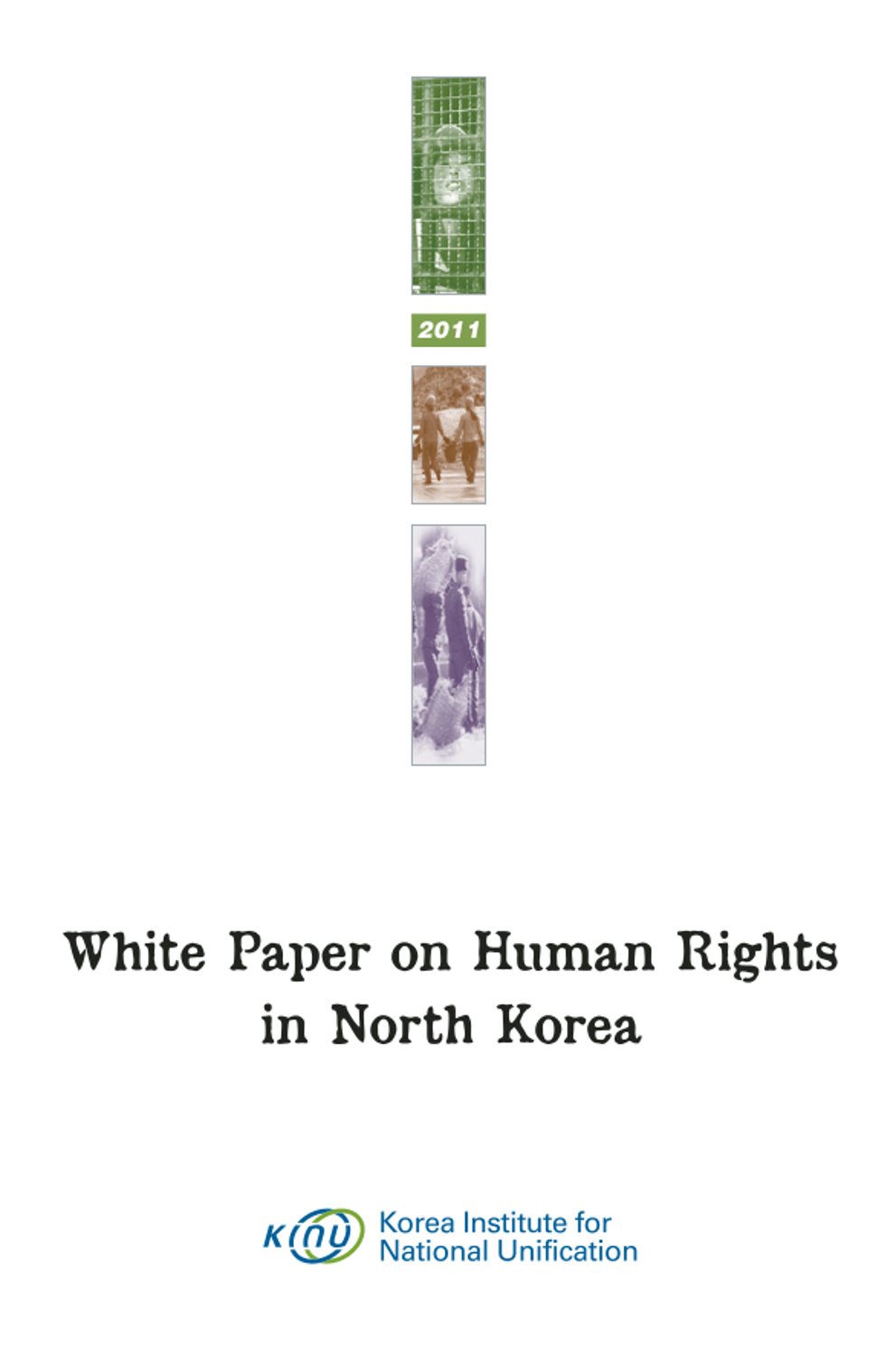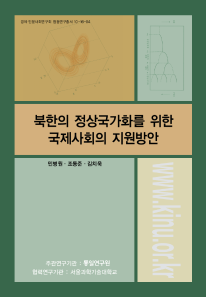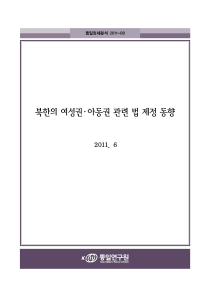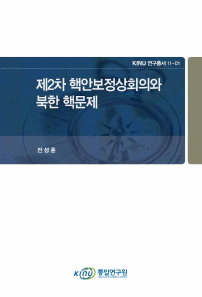
연구원발간물
White Paper on Human Rights in North Korea, 2011
- 발행사항
- Seoul : Korea Institute for National Unification, 2011
- 형태사항
- 545 p. ; 26 cm
- ISBN
- 9788984796034
- 청구기호
- 000 인권11-02
소장정보
| 위치 | 등록번호 | 청구기호 / 출력 | 상태 | 반납예정일 |
|---|---|---|---|---|
이용 가능 (2) | ||||
| 1자료실 | G0013223 | 대출가능 | - | |
| 1자료실 | G0013224 | 대출가능 | - | |
이용 가능 (2)
- 등록번호
- G0013223
- 상태/반납예정일
- 대출가능
- -
- 위치/청구기호(출력)
- 1자료실
- 등록번호
- G0013224
- 상태/반납예정일
- 대출가능
- -
- 위치/청구기호(출력)
- 1자료실
책 소개
Ever since North Korea openly asked for humanitarian assistance in 1995, the international community has paid considerable and continuing attention to the human rights situation in North Korea. And yet, North Korean authorities have shown little concern for improving their citizens’ standard of living, choosing instead to develop nuclear devices under the banner of “military-first politics.” In an effort to maintain their system of so-called “socialism in our own style,” the authorities decided to enforce tight controls over the marketplaces, which functioned as a major source of livelihood for most North Korean citizens, and exacerbated the vicious circle of poverty among the people. In order to strengthen its grip on the “people’s market” and garner additional revenue, North Korea implemented a currency reform. However, this currency reform failed to attain the government’s expected outcome; in addition, many people lost the basis of their livelihood in the wake of the currency reform and prices of essential commodities soared overnight.
In the wake of North Korea’s sinking of the South Korean warship Cheonan, international sanctions on North Korea tightened and North Korea’s economic situation deteriorated further. Amid this turmoil, North Korea convened a Party Congress on September 28, 2010 to formalize Kim Jong-eun’s status as the hereditary successor to the leadership. Subsequently, North Korea sought to relax the frozen inter-Korean relations by shifting gears and offering to hold another round of inter-Korean “separated family reunion” meetings. Surprisingly, however, on November 23rd North Korean forces launched an unprovoked artillery attack on Yonpyong Island, one of the islands off South Korea’s west coast. This long-range artillery attack drove the already tense inter-Korean relations into their worst phase since the end of the Cold War. Many specialists believed that the military provocation was perhaps designed to galvanize North Korea’s internal solidarity by creating inter-Korean tension.
Every year, the United Nations General Assembly has adopted a resolution calling on North Korea to improve its human rights situation. In the face of continuing and repeated pressure from the international community, however, North Korea refused to comply, protesting that they were the victims of a conspiracy to humiliate and degrade the “loftiness of our system.” Despite its claim of “loftiness,” North Korea has not taken any steps to enhance the “human dignity.” On the contrary, North Korea has been tightening control and surveillance over its population so that a stable atmosphere for the “third hereditary succession” may prevail. Despite their thorough-going controls, however, the number of defectors has continued to rise due to the persistent food shortage. In fact, more than 21,400 North Korean defectors have fled to South Korea as of May 2011.
목차
Executive Summary
I. Human Rights and the Characteristics of the North Korean System
1. Human Rights and Characteristics of the North Korean Regime
2. North Korea’s Concept of Human Rights
3. The International Human Rights Regime and North Korean Human Rights
II. The Reality of Civil and Political Rights
1. The Right to Life
2. The Rights to Liberty and Personal Safety
3. The Right to Due Process of the Law
4. The Right to Equality
5. Civil Liberties
6. Freedom of Religion
7. The Right of Political Participation
III. The Reality of Economic, Social, and Cultural Rights
1. The Right to Food
2. Social Security Rights
3. The Right to Work
4. The Freedom to Choose One’s Job
IV. The Reality of Minority Human Rights
1. Women’s Rights
2. The Rights of the Child
3. Care for the Disabled
V. Human Rights in Major Issue Areas
1. South Koreans Abducted and Detained in North Korea
2. Human Rights Abuses on Korean War POWs
3. Human Rights Abuses on Defectors
Major North Korean Human Rights Events in 2010
Public Executions in North Korea Since the Currency Reform
Major Figures Publicly Executed in the Last 5 Years




